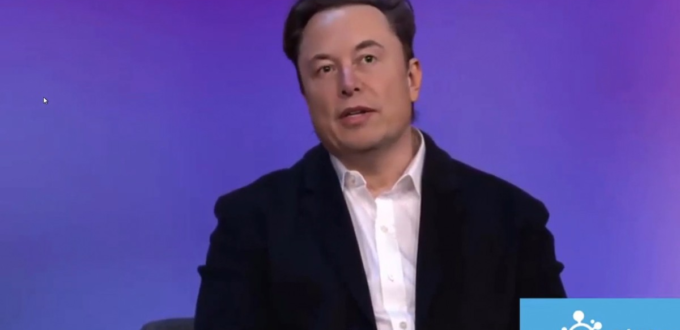Over the weekend, a video circulated online showing Elon Musk promoting an apparent cryptocurrency scam called BitVex. It was fake, most likely a deepfake—a video created by AI—and represented a new evolution in the world of shady crypto promotions. .
In the poorly-rendered (yet still likely convincing to some) video, Musk speaks in an April interview the billionaire gave with TED head Chris Anderson. The video syncs each person’s lips to a script delivered by a software-generated voice that sounds somewhat like Musk’s. The fake Musk claims that BitVex is a project he created to ensure Bitcoin is widely adopted and promises 30 percent returns every day over three months on any crypto deposited. Fake Anderson chimes in, adding that they’ve tried it themselves and promised it would for others as well.
The video had circulated on Twitter for a few days when Musk replied on Wednesday to a post tagging him. “Yikes. Def not me,” he tweeted.
Multiple BitVex URLs were unreachable at the time of writing. On a cached version of the BitVex website, the project not only claims Musk is its chief executive but features ringing endorsements from him, Binance CEO Changpeng Zhao, and Ark Invest CEO Cathie Wood. Creating an account and logging in pulls up a screen where you can see metrics on a dashboard, deposit crypto, look at investment plans, withdraw your funds, and look at the terms of service. The problem is that this is all fake. The main sign of legitimacy—the dashboard’s list of recent withdrawals other users have supposedly made—is randomly generated and changes every time the page was refreshed while it was live, BeepingComputer reported. Google Chrome currently marks the BitVex.io URL as being a “deceptive” website and says phishing attempts have been detected.
Despite all this, the scam doesn’t seem to be too successful. BeepingComputer identified a few wallet addresses associated with the website that had only secured $1,700 of deposits, but noted it’s possible the scammers could have multiple addresses in rotation and thus stolen far more crypto over time.
It’s grown increasingly easy to make such deepfake videos using readily available applications and tools such as Overdub, a service that brags about its ability to “make celebrities say anything you want” by making “realistic lip-sync videos,” and features an image of Musk on its site. To take just one example, a TikTok account named “pretendtobeanyone” features a host of deepfakes of celebrities saying relatively mundane or clearly false things. The account’s first video features an Overdub deepfake of a real Musk interview with Joe Rogan, another video is a deepfake of Musk saying he created Overdub in front of a background of Overdub’s promotional page.
Crypto scams haven’t only used celebrities to trick people into sending them tokens, however. On Thursday, Bloomberg reported that scammers are also hijacking accounts to pose as journalists and NFT projects, the latter of which are a particularly lucrative enterprise. When Yuga Labs, the company behind the Bored Ape Yacht Club, had a disastrous launch for its land NFTs that would play some role in its upcoming “metaverse” game, a host of scammers pretended to be associated with the company and made millions of dollars.
An 11-hour long version of the Musk deepfake is still up on Youtube and has 50,000 views as of publication.
ORIGINAL REPORTING ON EVERYTHING THAT MATTERS IN YOUR INBOX.
By signing up, you agree to the Terms of Use and Privacy Policy & to receive electronic communications from Vice Media Group, which may include marketing promotions, advertisements and sponsored content.

No Comments Yet